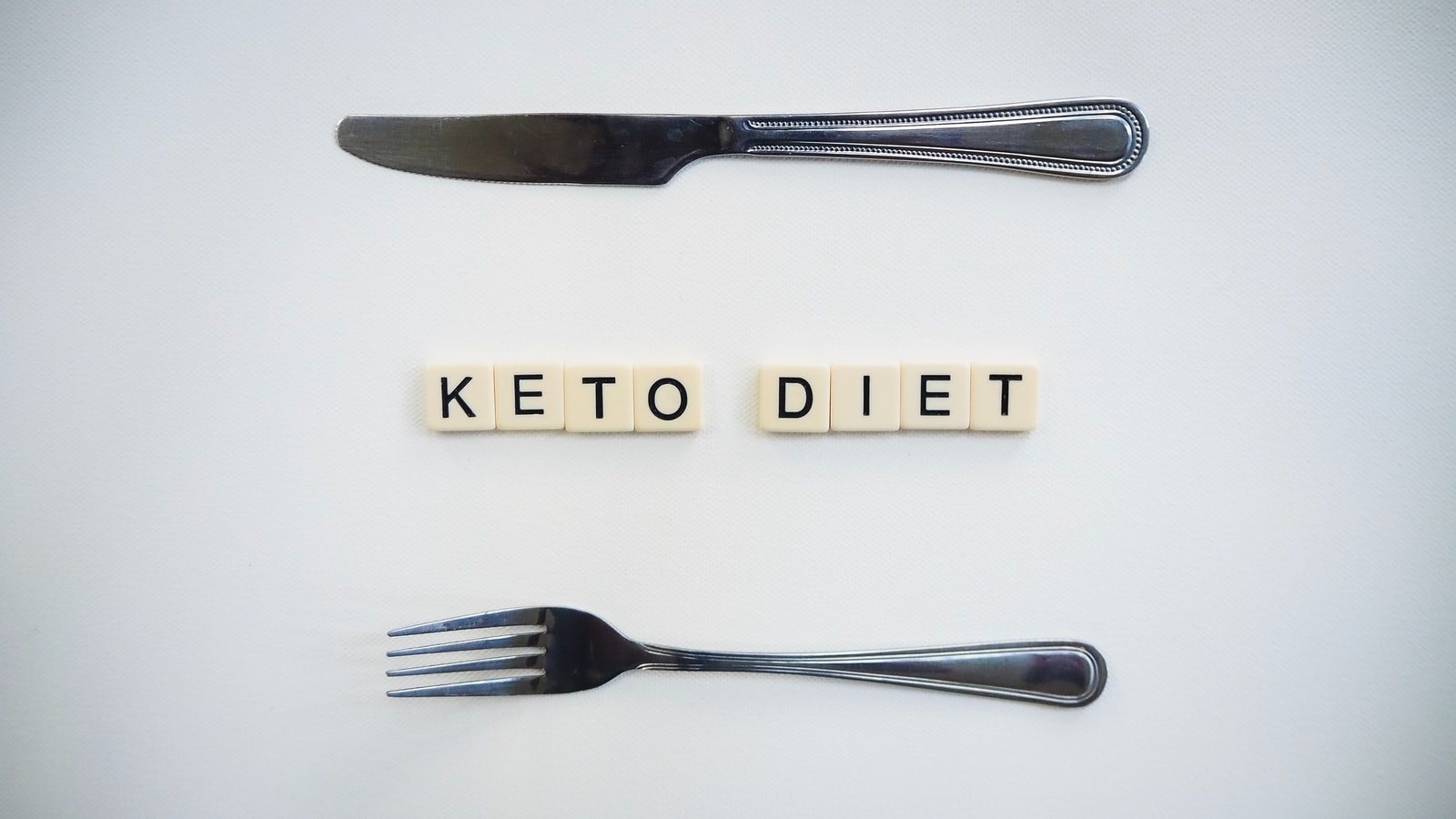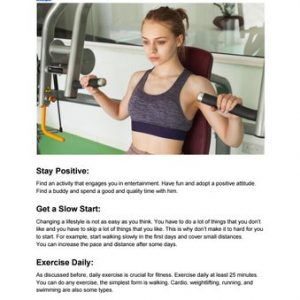Welcome to the world of health and nutrition! Ever wonder how to make sense of all the dietary advice out there? In this article, we’ll be shedding light on some of the most popular food and nutrition myths so you can make more informed decisions about your health.
My Contents
- 1. ‘Debunking’ Nutrition Myths—Confronting Misinformation About Food
- 2. Putting the ‘Facts’ Into Focus—Setting the Record Straight
- 3. Uncovering the Real Story—Unwinding the Confusion Surrounding Nutrition
- 4. Shedding Light on Nutrition—A Closer Look At What’s Really True
- 5. Shifting Perceptions of Nutrition—Exposing Common Misbeliefs
- My Diet Answers
1. ‘Debunking’ Nutrition Myths—Confronting Misinformation About Food
Nutrition myths seem to be everywhere these days. With the overwhelming amount of information about food, it can be hard to separate fact from fiction. To help you make the best decisions for you and your family, it’s important to do your research and get the facts. Here’s a look at some of the most common nutrition myths and tips on how to overcome them.
Myth 1: All calories are created equal
The truth is that not all calories are created equal. Sure, the amount of calories—not the type—matters for weight loss. But where those calories come from can make a huge difference in your overall health. Complex carbohydrates such as whole grains are better for you than simple sugars. Additionally, healthy fats are important for a balanced diet, and can actually be beneficial for lowering cholesterol and improving heart health.
Myth 2: You should avoid fried food
Yes, fried food is not the healthiest option but that doesn’t mean you should completely avoid it. Fried foods can be part of a healthy and balanced diet. Enjoy them in moderation and opt for healthier cooking methods like baking or simmering. Additionally, reduce the amount of oil you use when frying and opt for healthier oils such as olive oil or avocado oil.
Myth 3: You need to eat organic
Organic food has its benefits, but it’s not the only healthy option. Non-organic and conventionally grown foods also offer a wealth of nutrients and health benefits. When it comes to eating the healthiest foods, focus on
- Eating a variety of fresh fruits and vegetables
- Opting for lean proteins such as fish, lean meats, beans, and tofu
- Limiting processed and refined foods
- Sticking to healthy fats such as olive oil, avocado, and nuts
By staying informed and eating the right foods, you can make sure you and your family are eating the healthiest foods possible.
2. Putting the ‘Facts’ Into Focus—Setting the Record Straight
Often, when people hear the word “fact,” they instantly assume it to be infallible. However, many times, the “facts” we hear or read are not as bulletproof as they may initially appear to be! That’s why it’s important for us to be aware of the details behind the claims when we come across a “fact.”
Inaccuracies: Unfortunately, it’s not at all uncommon for facts to be distorted in some way. At times, the facts may be outdated, no longer accurate, or could simply be presented in an overly biased manner to make them more compelling. Also, statistics from a source that is not reputable may be untrustworthy.
Putting Things in Perspective: To make sure that only reliable information is passed on and accepted as true, taking a few precautionary measures can go a long way. Here are a few:
- Look for the source – reputable or not?
- In addition, question the authors’ motives – possible bias?
- Thoroughly review the facts – could they be outdated?
- Discuss the facts – compare and contrast multiple sources.
By following these steps, we can be sure to put the “facts” into perspective and put an end to the spreading of unreliable information!
3. Uncovering the Real Story—Unwinding the Confusion Surrounding Nutrition
With the sea of information out there related to nutrition, it can be hard to uncover the real truth behind it all. Rather than sifting through complicated scientific researches and drawn out discussions, the task of figuring out the basics has become a daunting one.
Luckily, there are easy ways to loosen the confusion around nutrition. Because, beyond all the hearsay, nutrition is much simpler than you may think.
To start unravelling the tangled thread of nutrition, here are few simple steps to follow:
- Be Selective with Advice: Not all advice is created equal. When it comes to advice, do your own research to make sure you’re getting the most reliable information available.
- Mind the Portion: Even natural foods contain calories, so make sure you’re eating the proper portion size with whatever food you’re eating.
- Focus on Food: Eating natural, whole foods is always best – frozen, pre-packaged, and processed foods are often loaded with additives and low in nutrients.
By the looks of it, nutrition isn’t as confusing as it once seemed. Keeping these few simple steps in mind, you’ll be well on your way towards uncovering the real story behind nutrition.
4. Shedding Light on Nutrition—A Closer Look At What’s Really True
What you eat can have a huge impact on your overall health. But with all the different diets, food trends, and nutrition advice out there, what should you really be looking for? Here are some facts that will help you make more informed decisions about what’s best for you.
- Calories are the foundation of proper nutrition; they provide a measure of how much energy is supplied to your body. While the number of calories you should eat daily depends on a variety of factors, balanced nutrition requires that you get the right amount for your individual situation.
- Processed Foods are convenient, but they are often high in calories, sugar, fat, and salt. Eating too many processed foods can lead to weight gain and an increased risk of chronic diseases. It’s important to limit your intake of processed foods and choose fresh options whenever possible.
- Nutrients are essential for proper functioning of your body. It is important to get enough vitamins, minerals, and other key nutrients from whole foods like fruits and vegetables. Additionally, it is important to read nutritional labels on packaged foods and look for healthy alternatives.
When buying food, always look for the “Nutrition Facts” panel to make sure it meets your nutritional needs. This panel contains information about how much of each nutrient is in the food. Also, take the time to read the ingredient list. This shows you what’s actually in the food; it’s best to look for products that have ingredients you recognize.
By combining the right calorie intake with the right nutrients, you can work towards feeling and looking your best. Nutrition is an incredibly important part of your health. It’s time to start shedding light on nutrition and make informed decisions about what’s best for your body.
5. Shifting Perceptions of Nutrition—Exposing Common Misbeliefs
In recent years, there has been an increasing awareness in the world of nutrition, with more and more individuals seeking to educate themselves on the benefits of a healthy diet. Despite this, there are still many common misconceptions about nutrition that can keep us from achieving our health and fitness goals.
Here are a few of the most common myths and the respective truths:
- Myth: Eating carbs makes you fat. Truth: After complex carbs are broken down into glucose, they are actually used to provide energy for our bodies. Without carbohydrates, the body cannot store or utilize the energy, leading to potential fatigue and slower progress in the gym.
- Myth: Eating fat is bad for you. Truth:Not all fat is created equal – it’s important to know the difference between healthy and unhealthy fats. Unsaturated fats, such as those found in fish, oily fish, seeds, olives and nuts, can actually help reduce cholesterol and beneficial to overall health.
One of the most important shifts of perspective is to understand the amount of effort it takes to maintain a truly healthy diet. Opting for a nutritious path shouldn’t be a chore and doesn’t have to cost an arm and a leg; by shopping strategically and making conscious choices to provide your body with the optimal fuel, you can start to improve your overall health and fitness in a matter of weeks.
My Diet Answers
Q: What is the goal of this article?
A: This article aims to debunk common myths about food and nutrition so that you can make more informed decisions about what you eat.
Q: What kind of myths are addressed in this article?
A: We cover a range of food and nutrition related myths, such as the idea that all carbs are bad, or that eating at night will make you gain weight.
Q: What resources are used to debunk these myths?
A: We use evidence-based research from studies, nutritionists, healthcare professionals, and more to help evaluate the validity of these common food and nutrition myths.
Q: Are there any other benefits to reading this article?
A: Yes! You’ll gain a better sense of awareness around food and nutrition conversations, so you can be more comfortable engaging in them. You’ll also have a better understanding of the types of choices that make for a healthy and balanced dietary lifestyle.
Now that you’re more aware of some of the most common food and nutrition myths, you can go forth and enjoy your food confidently. Keep learning and carrying the torch of knowledge to help spread truth and end any myth-based misunderstandings. Bon Appétit!










